WATERVILLE — Speaking to a packed house Wednesday at Colby College, independent U.S. Sen. Angus King spoke for roughly an hour on his vision for foreign policy.
The first-term senator outlined a big-picture way to think about foreign policy, the main message of which was: It’s complicated.
King outlined a number of general ideas to think of regarding his speech, during which he received multiple rounds of applause and laughter from a few quips.
Part of what makes foreign policy so complicated, King said, is history. While the United states is just a few hundred years old, King noted there are countries and ethnic groups that have been feuding for hundreds of years longer than the lifespan of the United States. He also said different countries have different relationships with each other depending on the issue and location.
“History complicates relationships,” he said.
King’s speech, titled “Lessons on Foreign Policy,” was the annual George J. Mitchell Distinguished International Lecture, which brings prominent figures to the college for a lecture. The series began in 2005 to honor George J. Mitchell, a Waterville native and former U.S. senator, statesman and international negotiator. Mitchell introduced King, speaking of his love of Waterville and Colby College, where the lecture took place. He spoke of how highly King is regarding for his leadership and governing.
“We’ve been privileged in Maine to have Angus. … We tend to get used to it, but we should remember how fortunate we are,” Mitchell said.
During his speech, King explained how foreign policy had changed over time. Now there are what King identified as “nonstate actors” to deal with, such as ISIS: groups of individuals, not a country. That heavily changes interactions, especially in moments of military action.
Earlier in the day, King also toured the downtown area with Colby President David Greene. Before that, he visited Educare Central Maine, where he discussed the Promoting Affordable Childcare for Everyone Act, which King reintroduced earlier this year with Sen. Richard Burr, R-North Carolina. The bill would help support high-quality child care for many low- and middle-income parents.
Greene gave King a tour of Main Street before King’s lecture, beginning at the Hains building at 173 Main St., a long vacant bank building that Colby purchased and is renovating. The tour culminated at the former site of Levine’s clothing store, where Colby is planning to build a boutique hotel. Greene explained to King that CGI Group Inc. — a technology company currently located in the Hathaway Center — would move into the top floor of the Hains building and would bring at least 200 jobs to the region. Across the street, Greene also pointed out The Concourse, where Colby recently bought land and plans to build a residential complex to house 200 college students downtown, and provide retail space on the first floor. Greene said the complex would bring more Colby students to downtown Waterville, but also would bring more city residents to Colby.
In an interview after the brief tour, King said that plans for development in downtown Waterville were “amazing.”
“It shows what leadership and imagination can do,” King said at the site of the demolished Levine’s building.
King said Colby’s involvement in the revitalization efforts has been huge. The college and the Harold Alfond Foundation have committed to investing $20 million into the downtown area — but said the next step in turning the downtown around involves jobs. He said building that workforce involves close connections between colleges and community colleges, as education plays a major role in enabling a workforce.
“It’s all hands on deck,” he said.
Across from the site of the planned hotel, and near to the Silver Street Tavern, are two buildings Colby also has purchased. Colby Vice President of Planning Brian Clark said the plan was to turn the buildings into market-rate housing.
King, who among other assignments serves on the Senate Committee on Armed Services, was also the state’s 72nd governor, serving two terms from 1995 until 2003. He was elected to his senate seat in 2012.
In the past few months, King voted to confirm Secretary of State Rex Tillerson in his post, despite having concerns about the former ExxonMobil executive’s possible ties to Russia. Other than that nomination, King largely has stood against much of President Donald Trump’s foreign policy, even going as far as saying Trump’s proposed travel ban — an executive order that attempted to block immigration from seven Muslim-majority countries — was “probably the worst foreign policy decision” since the invasion of Iraq. King — like the rest of Maine’s congressional delegation — supported U.S. airstrikes in Syria after more than 50 people were killed in a chemical gas attack, which was blamed on forces aligned with President Bashar al-Assad. King, however, did argue for congressional involvement in future strikes. The U.S. military launched 59 cruise missiles at a Syrian base in retaliation for the attack. King also said he does not think the United States should send U.S. ground troops into Syria.
During his speech, King spoke of what he viewed as “the real weapons of mass destruction”: politically frustrated young people who turn to radicalism. He said it’s not enough to simply try to kill terrorists; the factors that force people to organizations such as ISIS must be addressed.
“We have to talk about what are the underlying problem causing people to turn to this,” he said.
King also spoke of the role of climate change in foreign policy and national security. He said that war and instability in countries often are caused by things such as famine and drought, caused by changing climate.
“This has to be a worldwide effort in order to deal with it,” he said.
King’s final point to the full house was that the United States is a world leader, whether it likes it or not. He said the nation is engaged and must stay engaged, as well as understand where it can help others while knowing its limits.
“We have to know the lessons of history,” he said. “We are in a time of unprecedented change.”
Past speakers in the series have included former U.S. Secretary of State Madeline Albright; Harold Koh, legal advisor to former Secretary of State Hillary Clinton; former U.S. Deputy Secretary of State James Steinberg; and Republican U.S. Sen. Susan Collins.
Colin Ellis — 861-9253
cellis@centralmaine.com
Twitter: @colinoellis
Copy the Story LinkSend questions/comments to the editors.


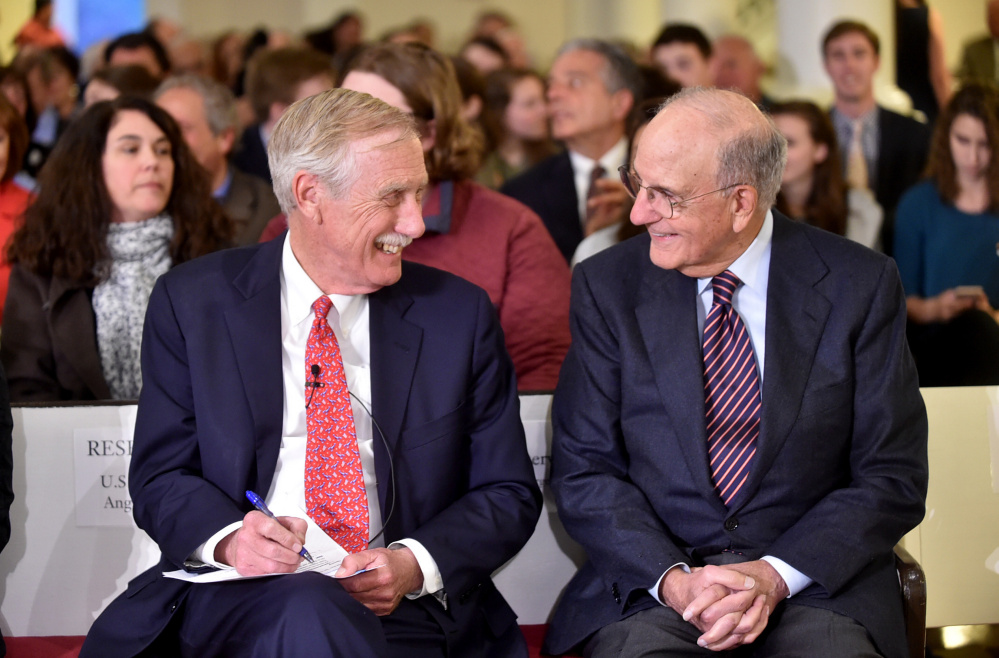
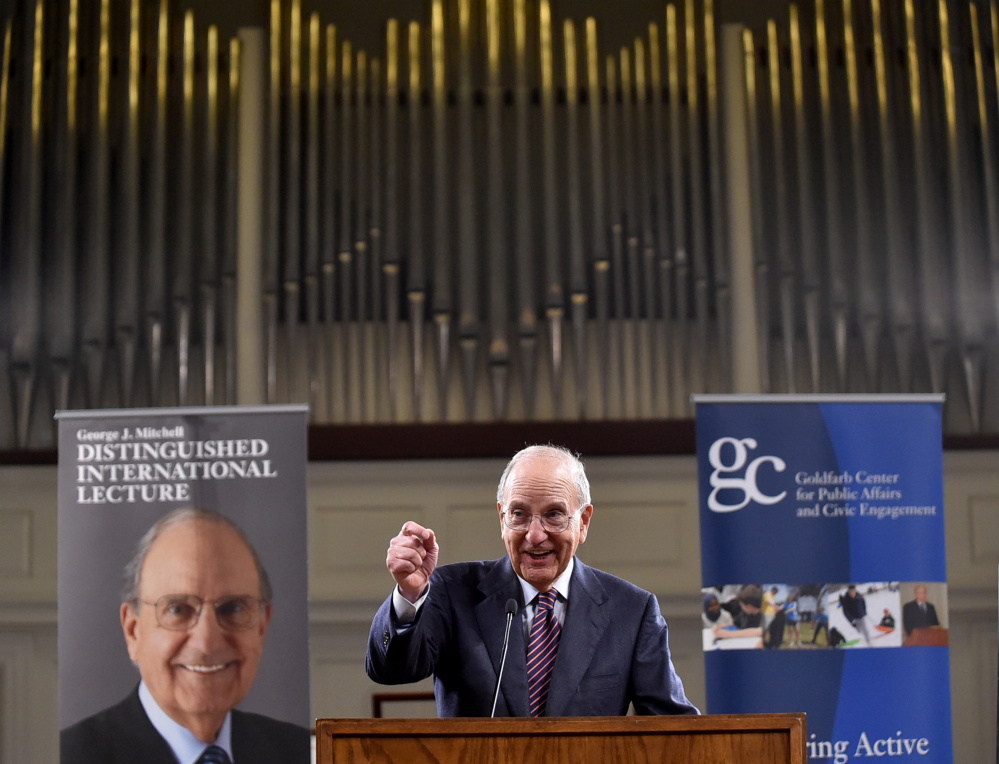
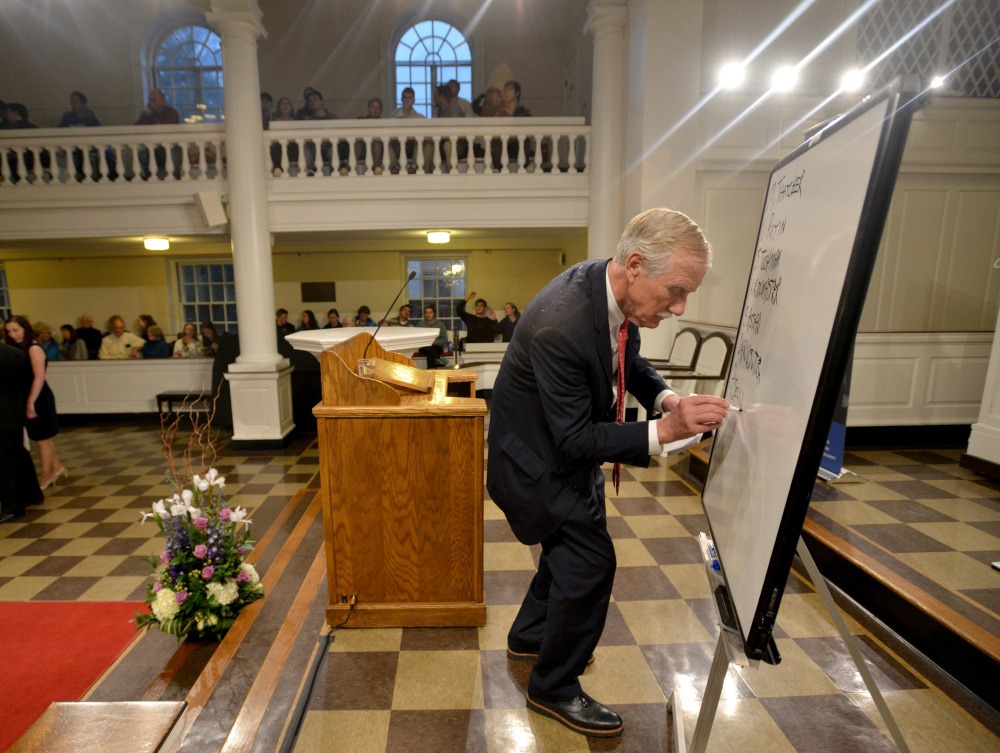
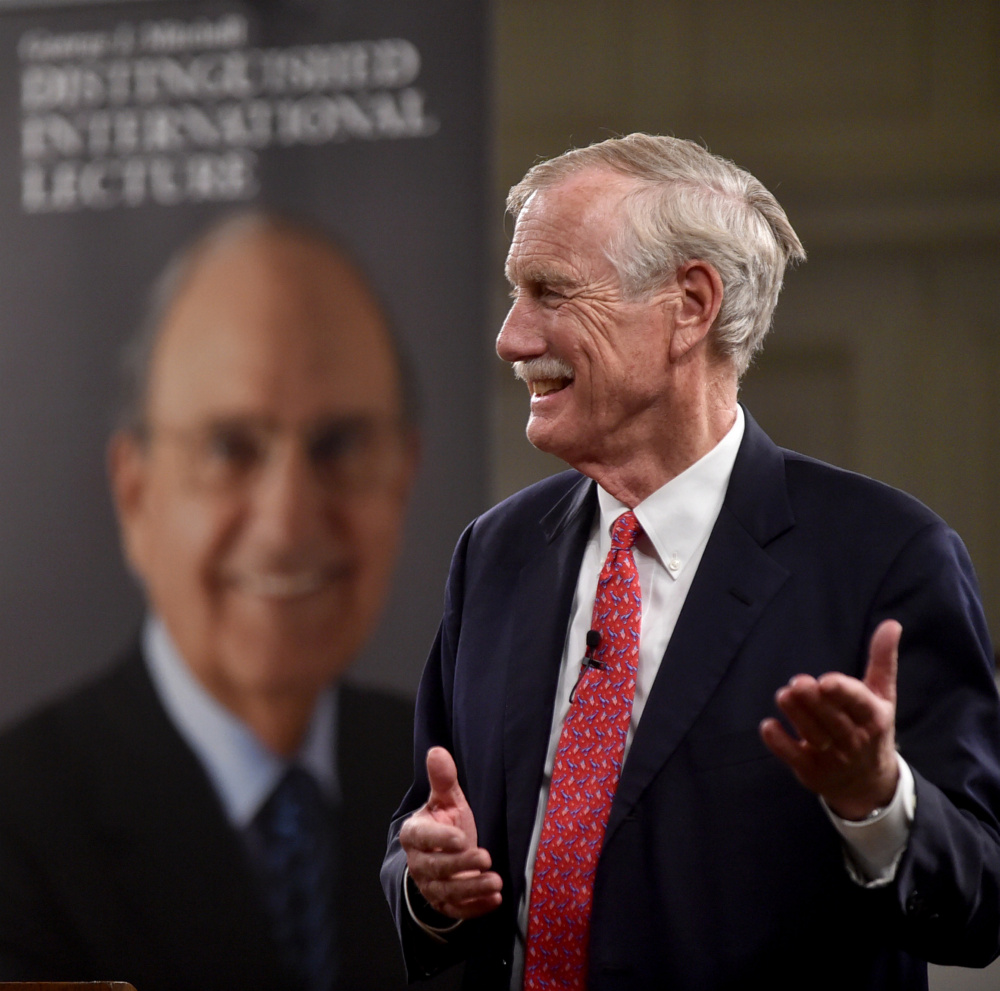

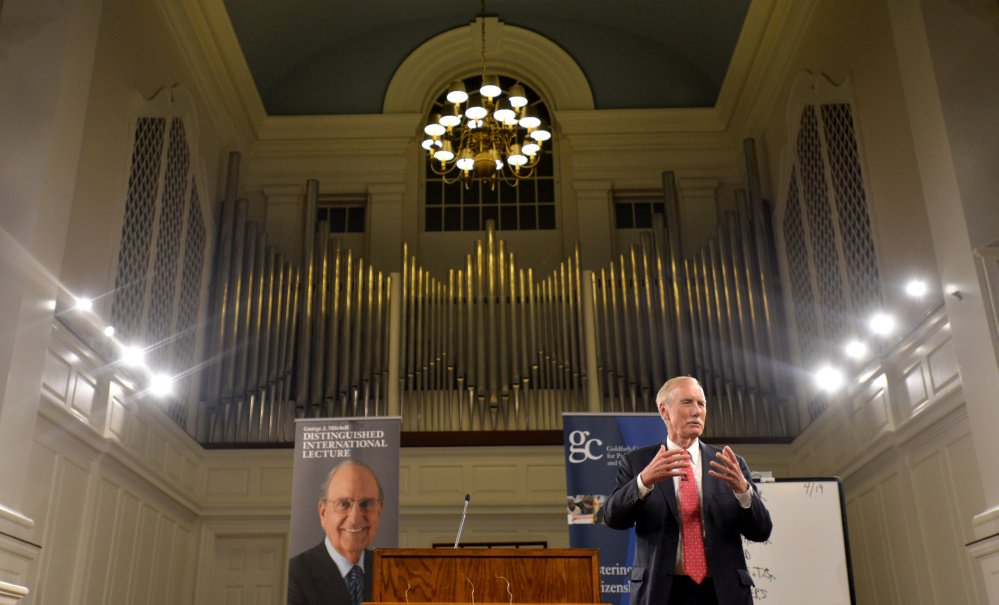
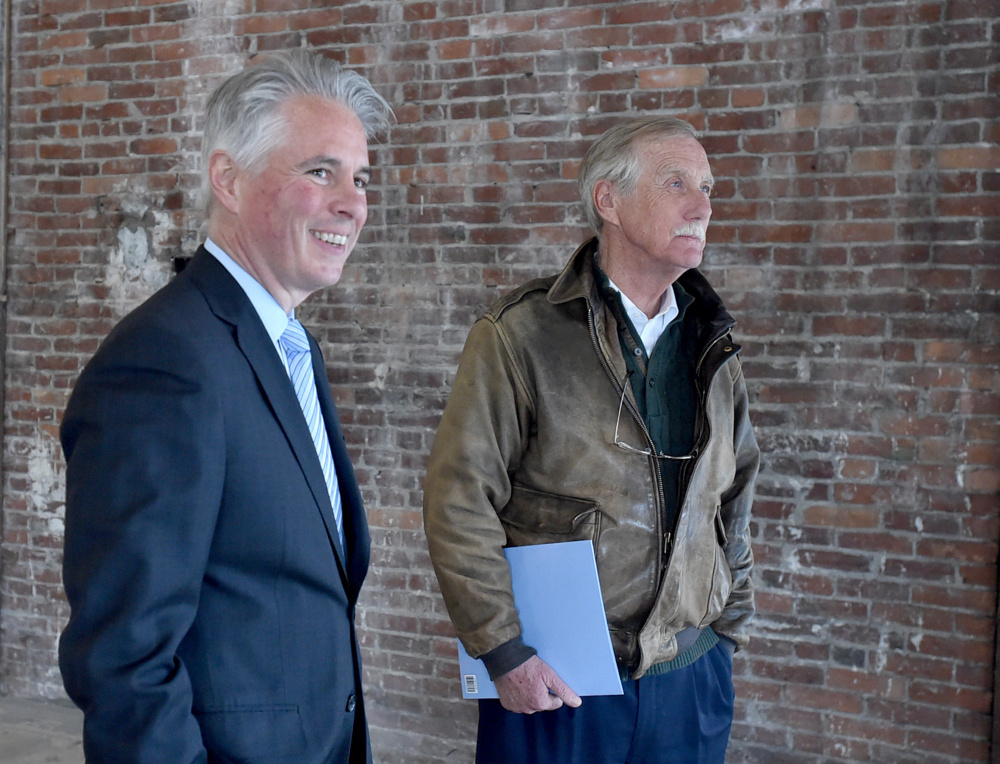
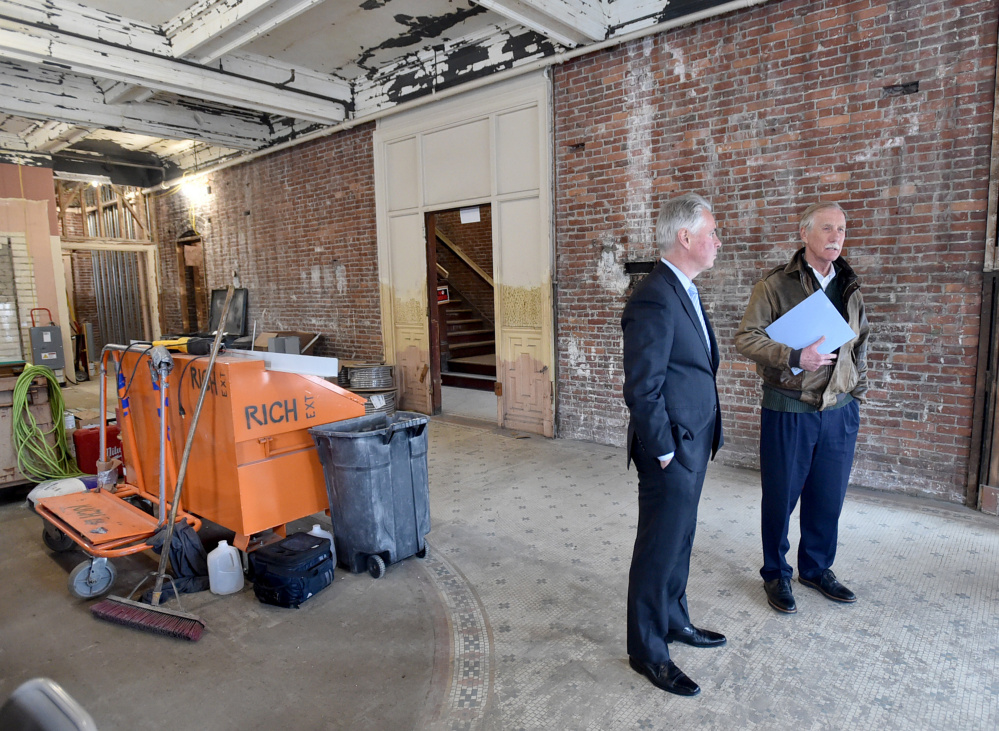
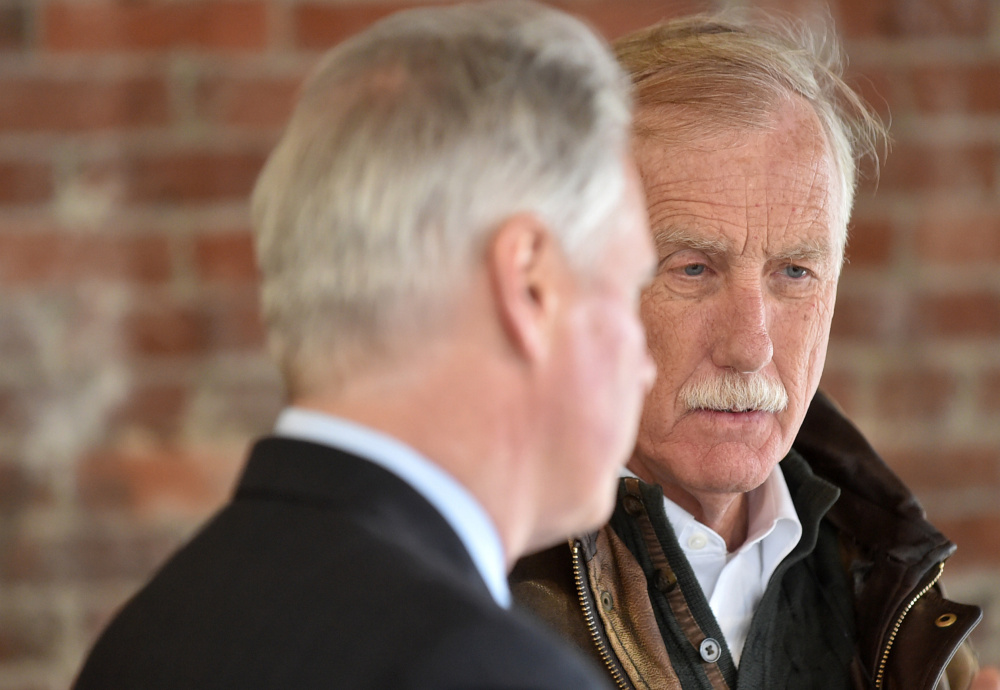

Success. Please wait for the page to reload. If the page does not reload within 5 seconds, please refresh the page.
Enter your email and password to access comments.
Hi, to comment on stories you must . This profile is in addition to your subscription and website login.
Already have a commenting profile? .
Invalid username/password.
Please check your email to confirm and complete your registration.
Only subscribers are eligible to post comments. Please subscribe or login first for digital access. Here’s why.
Use the form below to reset your password. When you've submitted your account email, we will send an email with a reset code.